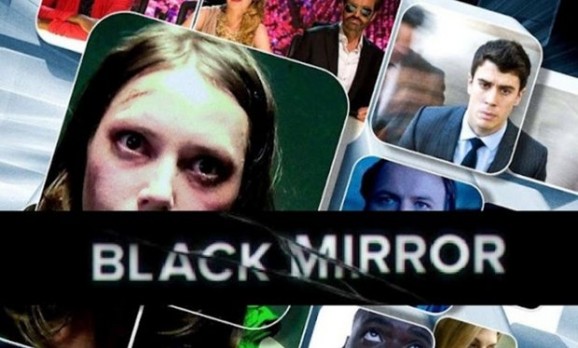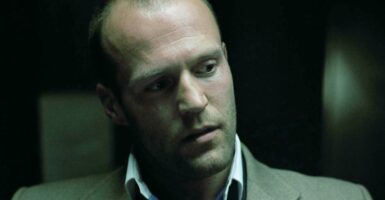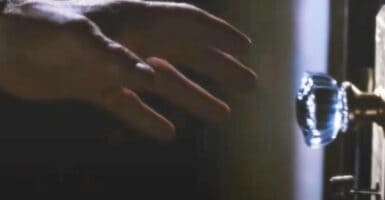Black Mirror: Why You Should Be Watching This Excellent British Anthology
Submitted for your approval.
This article is more than 2 years old
 Where has this show been my entire life? Take the Twilight Zone monster-of-the-week format and add a technology/social media focus and you’ve got Black Mirror, a British TV series that brilliantly explores the darker side of advancement in utterly believable and often terrifying ways.
Where has this show been my entire life? Take the Twilight Zone monster-of-the-week format and add a technology/social media focus and you’ve got Black Mirror, a British TV series that brilliantly explores the darker side of advancement in utterly believable and often terrifying ways.
The show is often referred to as an anthology series given that each episode has different character, a different cast, and an entirely different story, or even universe. It also garnered a Best TV Movie/Mini-series Emmy, and has announced a special Christmas episode that I’m really looking forward to. (Jon Hamm, y’all!) But what’s so impressive about the show lies in the execution. From conception to delivery, each episode explores a concept thoroughly and convincingly, while also managing to toss in twists you don’t see coming.
The pilot of the show has an amazing premise: the Duchess gets abducted, and the kidnapper calls the Prime Minister of England and says okay, I’ll give you back the Duchess…if you have sex with a pig on national television. And that’s only the first two minutes of the episode.
Of course, the situation becomes a major media event. The Prime Minister’s advisors conduct real-time polls via social media to gauge his approval rating as he tries to handle the situation, and their advice to him varies accordingly. I thought I could predict how the whole thing would play out, but I was wrong. That first episode, as with all the rest, commands attention from the very first scene. I kept thinking throughout, what would Obama do? What would anyone do? And social media would hold sway, at least to some extent. It’s somehow both ridiculous and realistic all at once.
Another amazing episode from season 1, “The Entire History of You,” involves a brain implant, which, in this world, the vast majority of people have, that essentially records everything a person sees. This episode speaks to those of us who have obsessively dissected conversations with various people, particularly people on whom we have crushes, looking for any little detail or indication about what these words actually means. Anyone with one of these brain devices can simply replay the conversation—it’s as though all the scenes from your life are categorized and archived for instant recall. It becomes difficult to lie and very easy to get paranoid.
Sometimes, all it takes is a single Tweet, a recording, or a leaked photo to damage someone’s character, or even ruin someone’s life. Digital records become synonymous with identity, and they become evidence of anything and everything. Life in real time becomes meaningful because it’s fleeting, rather than it gaining meaning for the same reason. It’s not hard to imagine this scenario.
This premise and episode are so good that Robert Downey Jr. optioned the script for a full-length feature, which Black Mirror episode author Jesse Armstrong will flesh out and write. Team Downey will work in conjunction with Warner Bros. to make and produce the film.
Black Mirror deals more with technology than with science—it seems to have a particular fascination with social media, ads, hive mind, our willing enslavement to media, and zombification. That’s what makes it so scary, like the best science fiction, it reflects the current state of our world. Sure, the Twilight Zone’s horror element worked beautifully, but that was largely because monsters and aliens and supernatural/unexplainable phenomena were relatively new back then. Dystopian stories about technology aren’t new either, but the types of technology Black Mirror focuses on haven’t been around for long enough to have been exhausted as plots and premises.
I wholeheartedly support the notion of “techno-optimism” as espoused by Project Hieroglyph and hope visionary sci-fi writers can provide some encouraging visions of the future to go along with the pessimistic ones. But I also think stories such as the ones Black Mirror tells are significant in shaping our future. Do we really want an animated character to run for office? Do we want people to get paid in online credits? Do we want to harness technology to inflict punishment for heinous criminals? If the answer to these questions is “no,” then perhaps in some small measure watching these episodes and shuddering at their conclusions can help us avoid some pitfalls. But of course, no show is so compelling that it could steer us clear of all of them.












